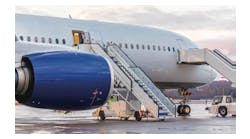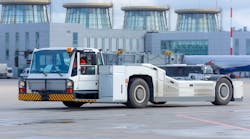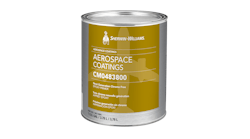COLOMIERS, France, June 28, 2016 – PPG (NYSE:PPG) has qualified its proprietary AEROCRON™ electrocoat (e-coat) aerospace primer at Dassault Aviation for application to structural aircraft parts for corrosion resistance. Qualification to DGT153703 enables Dassault subcontractors to produce parts for the aircraft manufacturer using the chrome-free PPG e-coat primer.
According to Daniel Bencun, PPG segment manager for aerospace coatings in the Europe, Middle East and Africa region, the Dassault qualification demonstrates growing interest in the advantages of PPG’s e-coat primer.
“Throughout its history, Dassault has been an innovator and aviation industry leader, and qualifying Aerocron primer shows Dassault’s continued commitment to technological advancements and the environment,” Bencun said. “In addition to its many application and performance benefits, Aerocron primer is chrome-free and water-based, and it reduces emissions as well as waste-treatment requirements.”
In the e-coat process, metal parts are immersed into the electrically charged Aerocron primer bath. Compared with traditional spray primer application, PPG’s e-coat process provides better corrosion protection, more uniform application, and less coating weight for cost savings and enhanced aircraft fuel economy. Product utilization with Aerocron primer is significantly higher with no overspray, eliminating related worker exposure and producing near-zero waste.
“Dassault aircraft operators will benefit from the reduced weight of coated parts and superior corrosion resistance with Aerocron primer,” Bencun said. “While it is difficult to spray on a primer with a consistent coating thickness, Aerocron primer achieves a uniform thickness even on hidden and recessed areas of a part, a significant advantage important within the aerospace industry. Weight savings can be about 30 percent for flat parts and up to 75 percent on complex-shaped parts.”
Dassault and its subcontractors will benefit from increased production capabilities, Bencun said. “The e-coat line can be fully automated, and parts can be coated and cured in just two hours, compared with days to achieve full cure for traditional primers. With up to 95 percent transfer ratio, users will also decrease product waste and related operational costs.”
PPG expects qualifications by other original-equipment aircraft manufacturers and tier-one suppliers soon, Bencun said. “More and more OEMs and their suppliers are coating and flying parts protected by PPG’s e-coat aerospace primer.”
Aerocron primer is also qualified to SAE International’s Aerospace Material Specification 3144 for anodic electrodeposition primer for aircraft applications.
PPG’s global aerospace business offers coatings, sealants, transparencies, packaging and application systems, and transparent armor, as well as chemical management and other services. For more information, visit www.ppgaerospace.com.
PPG: WE PROTECT AND BEAUTIFY THE WORLD™
At PPG (NYSE:PPG), we work every day to develop and deliver the paints, coatings and materials that our customers have trusted for more than 130 years. Through dedication and creativity, we solve our customers’ biggest challenges, collaborating closely to find the right path forward. With headquarters in Pittsburgh, we operate and innovate in more than 70 countries and reported net sales of $15.3 billion in 2015. We serve customers in construction, consumer products, industrial and transportation markets and aftermarkets. To learn more, visit www.ppg.com.
We protect and beautify the world is a trademark and the PPG Logo is a registered trademark of PPG Industries Ohio, Inc.
Aerocron is a trademark of PRC-DeSoto International, Inc.


